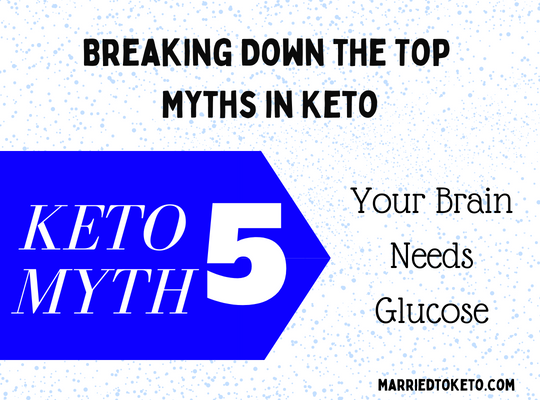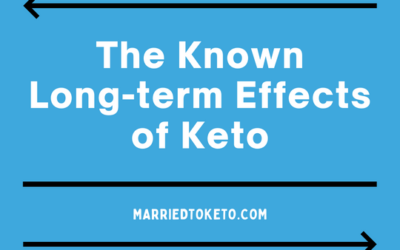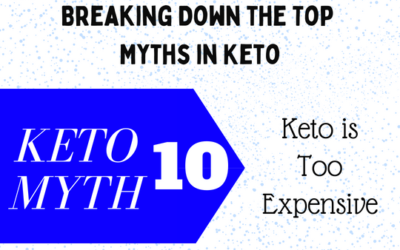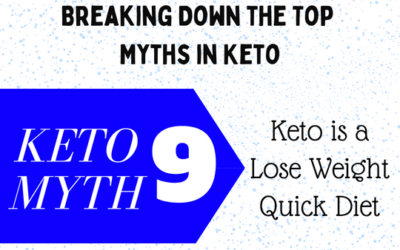Recently, I wrote a blog of the top 10 keto myths. Once I finished the blog, I realized how much there was to say about each one! So, I decided to break each one down into its own blog. The next one on the list is looking at the brain on keto. Does your brain need carbs to function properly? Here’s the deal on your brain and carbs.
The Myth About Your Brain and Carbs
So, the idea behind this is that the brain needs glucose to survive. Well, it turns out that isn’t so much of a myth. It does need glucose, but that doesn’t mean that we have to get our glucose through eating carbohydrates. And that, folks, is where the confusion comes from.
According to an article by Diet Doctor, our brain can do about 70-75% of its functioning on ketones. It needs glucose as the rest of its energy. Does that mean us keto people just don’t use the rest of our brains? Obviously not. The liver (resourceful little organ it is) can make glucose from non-carbohydrates. It can use fat we eat, fat we have stored, or protein to do this. The process is called gluconeogenesis – which is a big word meaning making new glucose.
Conditions that Improve Without Carbs
The entire reason for keto becoming a way people eat was as a control for epilepsy. Doctors found that when people who suffered from seizures didn’t eat for an extended period of time, their seizures stopped or at least were less severe.
The issue is that if you don’t eat, you will starve. But, when they had people eat fewer carbs and more fat, they went into ketosis. This had the same effect. Once medication was created for epilepsy, most people went to that option because it was easier. For some people, however, medications don’t work and then keto becomes their option.

Recent research is also looking at keto as a way of controlling Alzheimer’s disease. We know that Alzheimer’s occurs when the brain’s cells become insulin-resistant. They can’t use glucose properly anymore. More and more people are turning to keto as a possible way to reduce the effects of this condition.
The Science Around Your Brain and Carbs
I’ll be honest – when I started researching this myth, I was completely overwhelmed. I’m not a scientist. In fact, science was my least favourite subject in school and that was definitely reflected in my marks. I am someone who majored in sociology and minored in English literature!
Every video I watched, every article I read, just became more and more confusing. People wanting to look smart were talking about things I never wanted to hear. I just want to be healthier and feel good. Finally, the Diet Doctor article helped me make sense of it all. Your brain does need glucose, but you don’t have to eat carbs to get that glucose. Isn’t the body smart?
A Final Thought On Your Brain and Carbs
Here’s what I know…I have been on keto for two years now. I feel great. My bloodwork is good. I don’t have the 2pm lull that I used to have. With keto, I stick to about 20 grams of carbs a day. My body and my brain are somehow making this all work together. My thoughts are clear, and my mental health is much better than it was before I started keto.
The carbs I used to take in were filled with sugar. This contributed to the peaks and valleys of energy I felt every single day. I’m sure that affected the energy my brain was getting as well. Now, the carbs I do take in are filled with vitamins and nutrients in the form of vegetables. That has to be a better lifestyle option!
That’s it. That’s all I’ve got for you. If you like science, please do some research and come back to me. But in my opinion, the idea that the brain needs you to eat carbs in order to function properly is a myth.
Wendy





